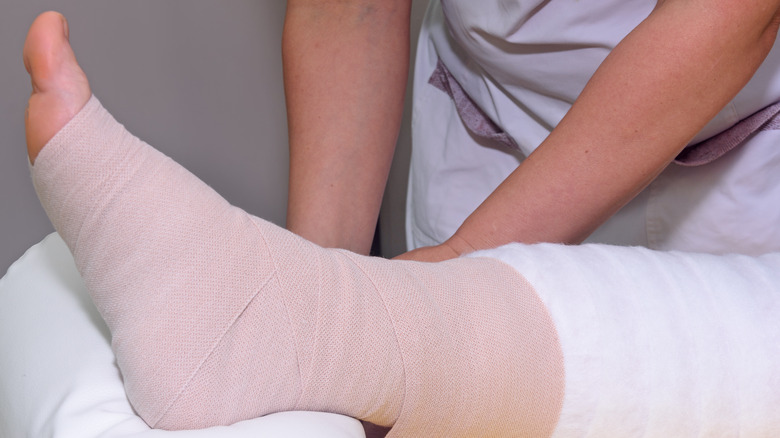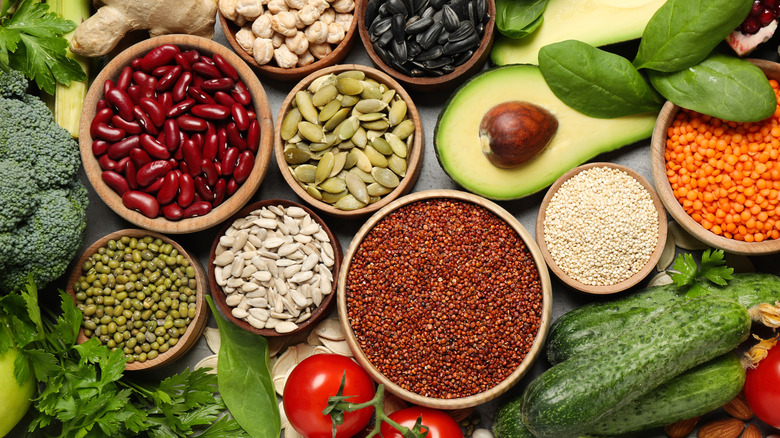These Essential Foods Can Help Improve Your Lymphedema Symptoms
Lymphedema is a painful disease that causes swelling in the arms, legs, area around the genitals, neck, and abdominal or chest wall, per the Mayo Clinic. The swollen part contains protein-rich liquid that cannot be drained out by the lymphatic system due to dysfunction of the lymph nodes. These nodes play an important part in collecting drainage fluid from various parts of the body.
Lymphedema is common in cancer patients, explains the Mayo Clinic. According to Johns Hopkins Medicine, there are many stages of lymphedema. The primary stage is usually free of lymphedema symptoms and only causes an abnormal lymph fluid flow. In the secondary stage, swelling begins, but it can be reduced if the affected body part is elevated. In the third stage, the swelling becomes permanent, and the skin turns scarred and thick. Johns Hopkins Medicine reports that the final stage is also called elephantiasis. It characterizes the abnormally large and deformed limb and its wart-like appearance. A 2022 study published in StatPearls reveals that, while primary lymphedema is rare, secondary lymphedema is more common, affecting 1 in 1,000 people in the U.S.
Foods that relieve lymphedema symptoms
In an interview with Livestrong, registered dietician Dr. Stacy Kennedy explained that it's important for lymphedema patients to consume a healthy diet containing natural food sources and avoid processed foods. She recommends eating lots of fruits and vegetables since they carry vital vitamins and minerals to boost your bodily functions. Some even have anti-inflammatory components that help ease lymphedema symptoms. Dr. Kennedy further explains that fruits and vegetables also improve gut health, which plays a key part in lymphatic system function.
Similarly, registered dietician Dr. Melissa Rifkin spoke with This Is Living With Cancer and suggested a diet that contains plenty of protein-rich food, sources such as poultry or fish. It's best to consume them in grilled or baked forms. She further adds to avoid the consumption of heavy fat-rich meat, such as beef or mutton. Dr. Rifkin advises patients with lymphedema to choose low-fat and low-sugar dairy products. It's also best to avoid consuming sodas, energy drinks, sweet coffee, and tea. A 2019 study published in Veins and Lymphatics suggested consuming a diet rich in polyphenols, as they carry beneficial effects against inflammation and edema. Some polyphenol-rich foods are curcumin, nuts, flaxseeds, olives, and various herbs (via WebMD).


